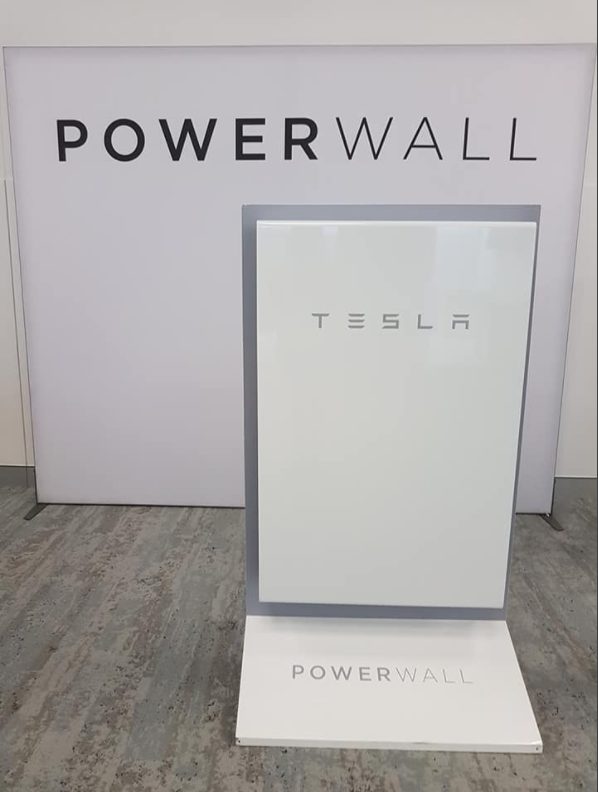The newly elected South Australia premier, the Liberal Steven Marshall, has made his first promise – his government intends to scale back the Tesla plan for the world’s biggest “virtual power plant” that would install batteries in low income households for no cost.
The Tesla plan – which aims to install 5kW of solar and a 13.5kWh Tesla Powerwall 2 battery storage unit in 50,000 homes – will create a virtual power plant with 250MW of capacity and 650MWh of storage.
The Labor Tesla plan was announced just before the official start of the election campaign. The first two stages of the proposal – for 1,100 Housing Trust homes – is apparently locked in with a $2 million grant and a $30 million loan, but the broader third phase is not yet set in stone.
“No, that’s not part of our agenda,” Marshall told ABC’s Radio National breakfast program, just minutes before being sworn in as premier.

Instead, Marshall said his government would proceed with his previously announced commitment to a $100 million subsidy to 40,000 homes, where he would offer $2,500 for each battery storage unit installed.
“(Former premier Jay Weatherill) was doing it for Housing Trust homes in South Australia … that’s not part of our plan. What we are going to do is provide a subsidy to get (those with) solar rooftops systems with some storage capacity.”
Update: Marshall later told a news conference he would not rescind contacts entered into by previous government. This however protects only the first two stages of the Tesla virtual power plant, affecting 1,100 households. The third phase, involving 49,000 other low income households, was not subject to a signed contract, RenewEconomy understands, because it would source private funding.
Marshall’s plans would, of course, be very difficult to access for low-income households because it would still require an upfront capital payments that they would likely be unable to afford. And they do not already have rooftop solar.
It’s an extraordinary start for the new Liberal government – promising to ditch a private initiative that would provide loans to low-income households in favour of a $100 million government subsidy that would be out of reach of those households most in need of it.
So much for free markets. But it also raises the issue of sovereign risk.
If the Liberal Party is to do back-flips on initiatives like this, will it also renege on the other contracts entered into by Labor’s Renewable Technology Fund – and there are many of those, for larger-scale storage developments, and for a variety of smaller and micro-grid proposals.
It could be that the Tesla virtual power plant could go ahead, seeing that it is privately funded and requires a retailer to be chosen to help roll out the scheme and act as an intermediary.
The idea was to install the solar and battery storage for free, and deliver a reduction of around one-third in the electricity bills of 25,000 Housing Trust homes, and another 25,000 private low-income households. Investors would provide the capital.
It would pool resources to deal with network issues and relieve any supply shortfalls.
However, given the new government’s antipathy to the scheme, it is entirely possible the tender process may be delayed and the private investors would not want to go ahead in such a hostile political environment.
It could also have an impact on Australia’s only solar manufacturer, Tindo Solar, which was looking to significantly increase its production capacity at its Adelaide manufacturing plant, and hire more employees, of course.
That’s because the Tesla plan would require half of the solar capacity to come from local manufacturers. It was also seen as an excellent platform for a new retailer to enter the South Australian market. The lack of competition in South Australia is one of the principal reasons for its high electricity prices.
The irony is that Marshall admitted he could see the benefits of battery storage – both at utility level and in households.
But he re-iterated his intent to scrap the state’s renewable energy target, because it would push up prices – even though the amount of projects under construction and promised by the new owner of the Whyalla steelworks would likely take the stake to Weatherill’s 75 per cent target, probably several years earlier.
Marshall also plans a new interconnector to NSW. Marshall says this will add to the “affordable reliable baseload” the state could access “when it’s not windy or sunny” in South Australia.
But appears to ignore the fact that NSW is already the state with the highest dependence on imports, even more than South Australia and may not been a position to export power to anyone.
But he also said the interconnector would allow for the “excess renewables” from South Australia to be exported to other states, “lowering prices across the entire nation.”
Hang on, didn’t you just say that the investment in renewables would push prices up? You can’t have it both ways. Please read this analysis of the implications of his election.